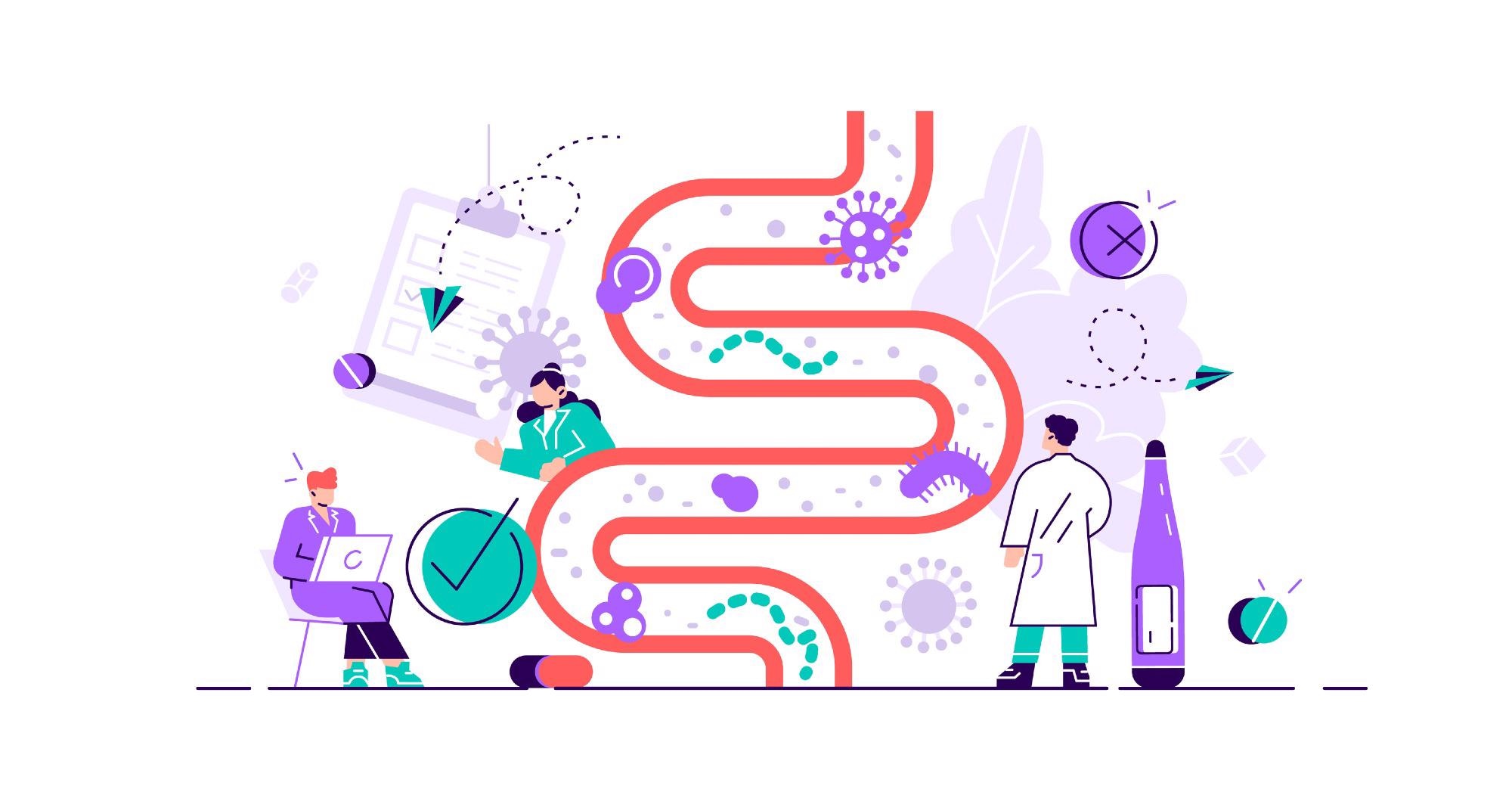Scientists and medics increasingly recognize the gut or digestive system as vitally important in human physical and mental health. All the organisms in the human are known as the gut microbiota, which is sometimes known as a complex hidden body organism vital to health.

Image Credit: Jarun Ontakrai/Shutterstock.com
The gut microbiota consists of over one hundred trillion organisms, including bacteria, fungi, viruses, archaea, and protists living in symbiotic homeostasis in the human gut. Heavy metals may significantly affect the health of the human digestive system and its microbiota composition.
The issue of heavy metals impacting gut health is complicated and subject to ongoing study. Some heavy metals such as zinc, copper, manganese, iron, and even chromium III are essential to human health in small amounts. Excessive consumption is, however, harmful to both gut health and health in general. Heavy metals such as Cadmium, Mercury, Lead, Chromium VI, silver, and Arsenic are acutely toxic even in minute doses. Some metals have been used therapeutically in modern medicine using nanoparticles.
It is challenging to study heavy metal poisoning in living humans. Much of the study of the influences on gut health occurs in animals extrapolating results to humans. Heavy metals are linked to several illnesses and conditions, including respiratory disease, cardiovascular diseases, neurological degeneration, autism, and obesity.
Epidemiological studies show that heavy metals have a significant influence on human gut health by disrupting gut microbiota. This disruption changes the composition of the microbes present in the gut, which can have tremendous implications for human health. The presence of heavy metals influences the composition of the gut microbiota. In many cases, the gut microbiota is the first line of defense against heavy metals, which means changes can impinge on the gut's ability to deal with heavy metals.
How are Humans Exposed to Heavy Metals
Human exposure to heavy metals can be via several different routes. It is commonly through food and water consumption and exposure to pollution from industry, mining, and agriculture.
Water is a significant source of two toxic metals, Aluminum, and Arsenic, which are arguably not heavy metals but are regarded by toxicologists as heavy metals. Aluminum compounds are used extensively in water treatment for the removal of suspended solids to give clear water. Arsenic is in many water supplies worldwide, and it is present in food staples such as rice. Arsenic is used in many pesticides used to spray food crops and is an ingredient in metals smelting.
Cadmium is another heavy metal commonly found in drinking water. It is present in the environment because of mining, agriculture (fertilizers), and industry (battery, pigment, and plastics production). Cadmium is present in some mushrooms, shellfish, freshwater fish, and dried algae.
Lead is frequently present in potable water; historically, it was used extensively in domestic water pipework. It is present in some meat, fruit, seafood, and wine. It is also a component of chemicals, paints, putty, and pesticides.
Food contamination can occur via soil contamination, fertilizer impurities, application of pesticides, and herbicides. The metals appear in many foods such as plants (e.g.rice, cereals, edible roots, mushrooms, etc.) and animals (e.g., fish, crustaceans, and mollusks). Heavy metals are particularly a problem in some kinds of seafood as they bioaccumulate as you move up the food chain. Many of the species consumed by humans are predators and even apex predators.
Food contamination can also be by aerial pollution from the same sources as soil contamination.
How do Metals affect the Gut?
There is evidence that heavy metals have a significant effect on the health of the human gut. Evidence shows that heavy metals contribute to the causes of or progression of many diseases and conditions. These phenomena are not well understood as many studies of human gut health have focussed on diet and exposure to antibiotics. Xenobiotic agents, such as heavy metals, significantly influence human gut microbiota composition, but exactly how that influence manifests itself is not always fully understood.
The intestinal epithelium is critical in heavy metal metabolism. Firstly it acts as a physical barrier by ensuring the initiation of a mucosal immune response to pathogenic microbes and chemicals. This response will detoxify and exclude metals from entering the human body. The presence of heavy metals in inorganic or organic forms can disrupt the homeostasis and lead to a preponderance of specific microbes in the microbiota and an absence of others. This dysbiosis is linked to the causes and progression of many diseases, but the etiology and epidemiology are not always well known.
Heavy metals such as lead and cadmium lead to excessive local and systemic oxidative stress, disrupting metabolic processes. These heavy metals will tend to accumulate in specific organs in the body, causing ill health and acute poisoning. A healthy gut can exclude some heavy metals from absorption; these metals pass through the gut, and they are partly excreted in feces, but a portion will be absorbed into the body. Heavy metals can disrupt the microbiota and cause poor gut health. An unhealthy gut will allow the passage of more of the heavy metals into the body, which will increase the chances of illness and poisoning.

Image Credit: MarcoVector/Shutterstock.com
It is not possible to break down inorganic metals into smaller non-toxic components. Once they are absorbed, heavy metals will accumulate in organs such as the liver and lead to acute symptoms. Their presence in the gut alters the composition of gut microbes which can change the pH and redox potential in the gut as the microbiota try to block the passage of toxins into the body. These changes can influence the uptake of beneficial substances, further damaging the health of the person and reducing the capacity to fight against poisoning.
Heavy metal poisoning can be challenging to treat and may even be incurable. Studying the effects of heavy metals on the health of the gut microbiota may lead to treating diseases and conditions caused by them. It may also lead to ways of preventing the absorption of heavy metals from the environment
Sources:
- Heavy Metals in Foods. https://www.agqlabs.us.com/heavy-metals-in-foods/
- Role of the gut microbiota in nutrition and health Ana M Valdes, associate professor, Jens Walter, CAIP chair for nutrition, microbes, and gastrointestinal health, Eran Segal, professor, Tim D Spector, professor https://www.bmj.com/content/361/bmj.k2179 CCBYNC Open access
- Influence of toxic metal exposure on the gut microbiota (Review) Federica Giambò, Sebastiano Italia, Michele Teodoro, Giusi Briguglio, Nicola Furnari, Rosaria Catanoso, Chiara Costa, Concettina Fenga https://doi.org/10.3892/wasj.2021.90
- Ecotoxicology inside the gut: impact of heavy metals on the mouse microbiome. Jérôme Breton, Sébastien Massart, Peter Vandamme,Evie De Brandt, Bruno Pot & Benoît Foligné BMC Pharmacology and Toxicology volume 14 https://bmcpharmacoltoxicol.biomedcentral.com/articles/10.1186/2050-6511-14-62
Last Updated: Feb 16, 2022